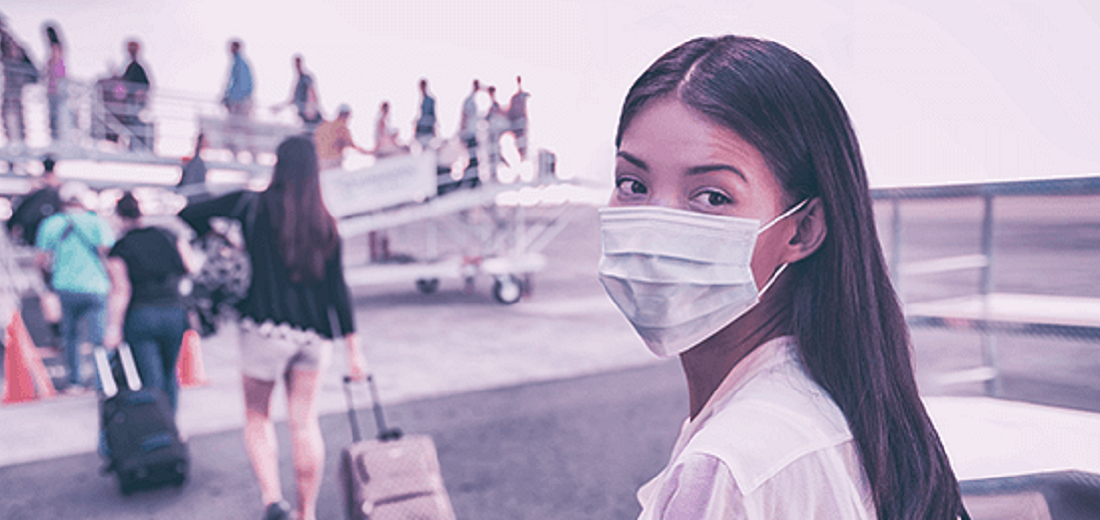This information aims to help patients diagnosed with cancer and their caretakers to understand more about Corona virus (COVID-19).
What is corona virus and COVID-19?
Corona virus are a large family of viruses that can cause a range of illness in humans such as common cold and more severe form of respiratory problems. COVID-19 is an infectious disease caused by a new corona virus that has led to a large outbreak.
How does COVID-19 spread?
Transmission occurs from one person-to-another mainly through respiratory droplets released when an infected person with COVID-19 coughs or exhales. These droplets may also land on objects and surfaces. Normal people can catch COVID-19 by touching these objects or surfaces and then touching their eyes, nose or mouth.
What are the symptoms of COVID-19?
You may develop fever, sore throat, running nose, cough or breathing difficulties. Occasionally, you may develop pneumonia which can be potentially life-threatening. In some cases, there may be no obvious symptoms present.
What is the severity of COVID-19?
While most people who get sick recover from COVID-19. Recovery time varies based on the individual and the severity of the illness. People with mild to moderate symptoms may recover in a short period of time. Occasionally it may lead to severe or life-threatening illness and even death can occur.
What are the steps to reduce your risk of COVID-19?
The most important way to protect yourself is to avoid being exposed to COVID-19, whenever possible.
- Wash your hands thoroughly with soap and warm water or with an alcohol based hand sanitizer
- Avoid touching your eyes, nose, and mouth. Once contaminated, hands can transfer the virus to your eyes, nose or mouth. From there, the virus can enter your body and can make you sick
- If you must cough or sneeze, please use a tissue, cough or sneeze into your elbow rather than your hand
- Avoid close contact with people who are sick. Please maintain distance between yourself and anyone who is coughing or sneezing
- Clean frequently touched objects and surfaces with household cleaning spray or wipes. Studies suggest that corona viruses may survive on surfaces for a few hours to days. So if you think a surface might be infected, clean it with a simple disinfectant
- Avoid all nonessential travels and please avoid people who are exposed to COVID-19.
- If you have fever, cough or difficulty breathing, please seek medical help and call your health care provider.
As a cancer patient, when do I need to be tested for COVID-19?
If you think you’ve been exposed to the virus or if you have fever, cough, having breathing difficulties call your health care provider right away. They will ask screening questions to check whether or not you should be tested for COVID-19.
Will chemotherapy increase the risk of contracting COVID-19?
Certain anti-cancer treatments such as chemotherapy or radiotherapy may affect your immune system temporarily. If you’re immune-compromised and exposed to COVID-19 then you may be at increased risk of becoming infected. COVID-19 virus is more likely to progress at a greater speed in a cancer patient. It is best to discuss with your health care provider to intervene early.
What should I do if I test positive for COVID-19?
If you’re tested positive then you will have to maintain good respiratory hygiene and follow your health care provider’s advice.
What should I do if I test negative for COVID-19?
Get plenty of rest and fluids, and contact your healthcare provider if you have any questions.
Are there any special precautions for people diagnosed with cancer?
People diagnosed with cancer may be at high risk. However, there are no special steps to protect themselves against COVID-19. Please ensure to wash your hands well, and wash them frequently. Avoid crowded places as much as possible. Please get your flu shot each year to help decrease.
FAQ’s
Should I wear a mask to protect myself?
Face masks are not recommended to prevent COVID-19. However, if you are sick with a respiratory illness or looking after someone who may have COVID-19, please wear an N-95 face mask.
Can I catch COVID-19 from an animal source?
Possible animal sources of COVID-19 have not yet been confirmed. There are no studies that suggest pets such as cats and dogs have been infected or could spread COVID-19. Also, there is no information to suggest that the new coronavirus could be transmitted by mosquitoes.
Handle raw meat, milk or animal organs with care to avoid contamination of uncooked foods and avoid consuming raw or undercooked animal products.
What is the treatment for COVID-19?
To date, there is no specific treatment for corona virus. Antibiotics do not help, as they do not work against viruses. Supportive care treatment aims to relieve the symptoms. You may need to be isolated away from other people until you’ve completely recovered.
